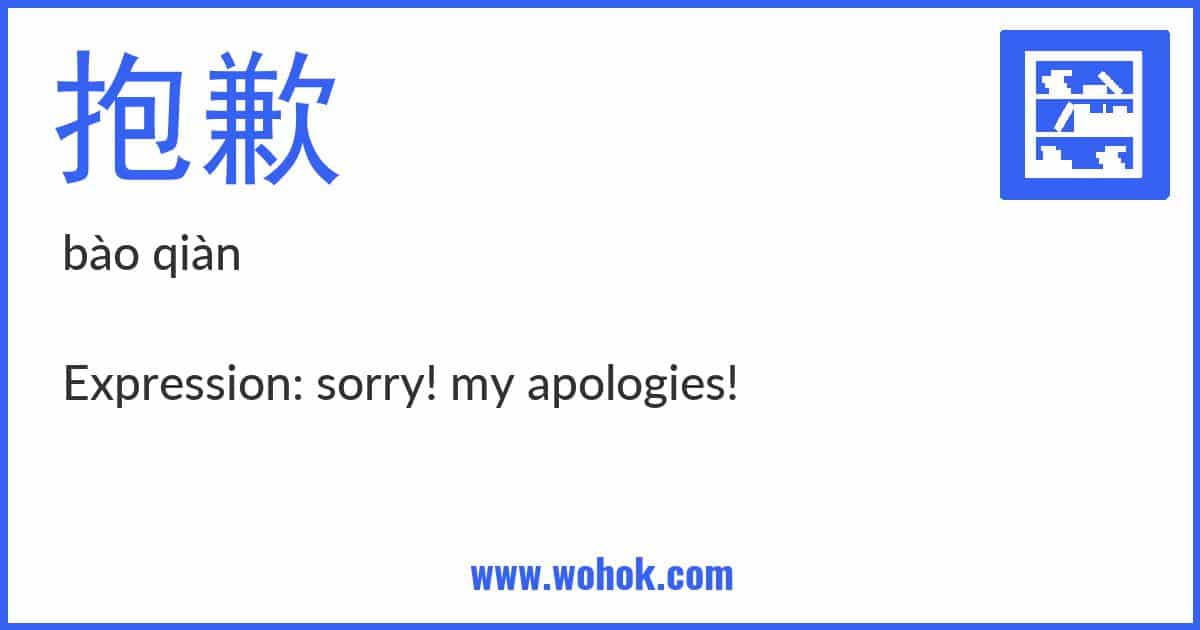The Chinese word 抱歉 is often used to express apologies or regret. It can be used in a variety of situations, such as when someone has made a mistake or caused inconvenience to others. For example, if you accidentally bump into someone on the street, you might say “抱歉” to apologize. Similarly, if you are unable to attend a friend’s party, you might say “很抱歉” to express your regret. The word can also be used to express sympathy or condolence, such as when someone has experienced a loss or hardship.
Translation
Expression: sorry! my apologies!
Pronunciation
Example Sentences
| Chinese | Pinyin | Engish |
|---|---|---|
| 抱歉,我迟到了 | bào qiàn, wǒ chí dào le | Sorry, I’m late |
| 我很抱歉,我不能来参加你的派对 | wǒ hěn bào qiàn, wǒ bù néng lái cān jiā nǐ de pài duì | I’m sorry, I can’t come to your party |
| 抱歉,我不能帮你 | bào qiàn, wǒ bù néng bāng nǐ | Sorry, I can’t help you |
| 我很抱歉听到你的噩耗 | wǒ hěn bào qiàn tīng dào nǐ de è háo | I’m sorry to hear your bad news |
| 抱歉,我不明白你的问题 | bào qiàn, wǒ bù míng bái nǐ de wèn tí | Sorry, I don’t understand your question |
| 我对我的行为感到很抱歉 | wǒ duì wǒ de xíng wéi gǎn dào hěn bào qiàn | I’m sorry for my behavior |
| 抱歉,我不能去旅行 | bào qiàn, wǒ bù néng qù lǚ xíng | Sorry, I can’t go on the trip |
| 我很抱歉打扰你 | wǒ hěn bào qiàn dǎ rǎo nǐ | I’m sorry to bother you |
HSK
抱歉 is part of HSK Level 4 in HSK 2.0. In the newer HSK 3.0 it is part of HSK Level 6.
Learning Card


